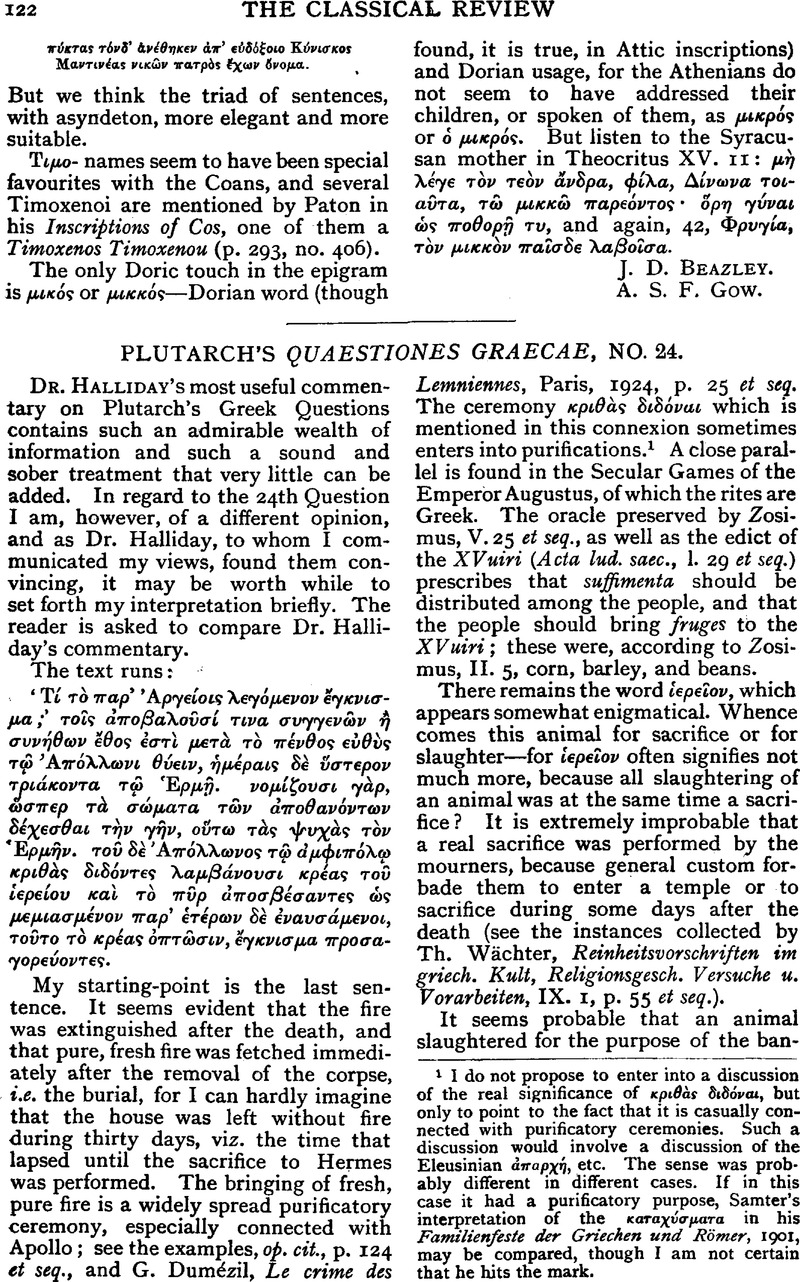No CrossRef data available.
Article contents
Plutarch's Quaestiones Graecae, No. 24
Published online by Cambridge University Press: 27 October 2009
Abstract

- Type
- Review Article
- Information
- Copyright
- Copyright © The Classical Association 1929
References
1 I do not propose to enter into a discussion of the real significance of κριθ⋯ς διδ⋯ναι, but only to point to the fact that it is casually connected with purificatory ceremonies. Such a discussion would involve a discussion of the Eleusinian ⋯παρχ⋯, etc. The sense was probably different in different cases. If in this case it had a purificatory purpose, Samter's interpretation of the καταχ⋯σμαγα in his Familienfeste der Griechen und Römer, 1901, may be compared, though I am not certain that he hits the mark.
2 Stengel's, contention, Griech. Kultusaltertümer, 3rd editionGoogle Scholar, p. 146, that the περ⋯ειπνο took place on the third day is due to a misinterpretation of Lucian, , De luctu, 24.Google Scholar The best information is given by the comic poet Hegesippus in Athenaeus, VII., p. 290 c; cf. Heraclides Ponticus, Polit. 30, 2.


